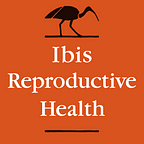It’s time to change the way we think about birth control access. Health care providers agree.
By Allie Wollum, MPH
As the COVID-19 pandemic continues to spread throughout the United States, more attention has been drawn to the barriers people face in accessing birth control. In addition to existing challenges, like finding time and money to visit a provider, seeking care in person at a clinic increases the risk of contracting and spreading the virus. The pandemic has taught us that people are eager to access birth control in new and more convenient ways. Too often, obstacles can prevent people from accessing the care they need. Health care delivery must change to meet the moment and contraception is no exception. Our new research in the Journal of Women’s Health shows that health care providers support an over-the-counter (OTC) birth control pill upon receiving evidence-based information about it. When provided with evidence-based information, the majority of clinicians support bringing either a combined oral contraceptive (COC) or progestin-only pill (POP) over the counter. This shows the clear importance of educating health care providers in order to expand access and make over-the-counter birth control pills a reality.
Barriers to birth control existed long before the pandemic and have only been exacerbated during this public health crisis. These barriers include cost, insurance coverage, taking time off work or school, finding child care, and having access to a health care provider. By bringing a birth control pill OTC, we can make this essential health care more accessible and give people greater control over their lives and reproductive health.
Health care providers are trusted sources of information and influential voices in the scientific community. There is widespread support among medical organizations including the American College of Obstetricians and Gynecologists (ACOG) and the American Medical Association (AMA) for bringing a birth control pill OTC. Our study shows when practicing health care providers are given evidence-based information about moving oral contraceptives (OCs) over the counter, the majority of them support it. Information that addresses certain types of OCs may be particularly important — we found that support increased for moving a POP over the counter by 50% among providers who received information about this form of oral contraceptives.
The top concern from providers who oppose bringing POPs or COCs over the counter is safety. We know that both combined pills and progestin-only pills are safe for over-the-counter sale and people seeking them are able to self-screen for contraindications using a simple checklist. We also know that all oral contraceptives are highly effective. Our research shows that evidence-based information about the effectiveness of progestin-only pills in particular is essential to ensuring that providers have the information they need to support moving OCs over the counter.
There are many barriers to birth control and the pandemic has compounded these barriers, particularly for Indigenous peoples, Black people, and Latinx people. Free the Pill is working to address those barriers and expand access to health care. Making the birth control pill available over the counter is one way to address the deep-seated barriers in our health care system. By prioritizing providing evidence-based information to address misconceptions about birth control, health care providers can help support this change.
